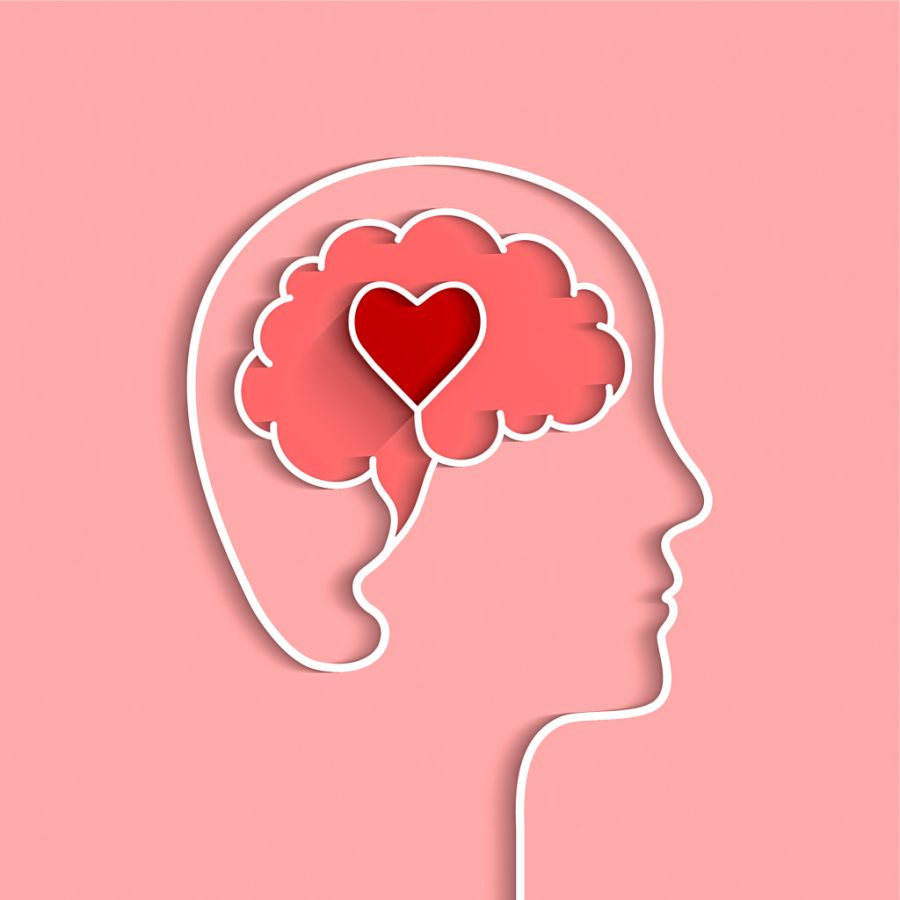Love isn’t romantic. Here’s why.
February 17, 2021
It’s pouring rain, and a drenched Ryan Gosling confesses his undying love for the beautiful rich girl, Rachel McAdams. The music swells along with their dramatic kiss, unknowingly enabling the swoon of many wistful romantics, with only more to come. The quintessential movie scene is infamous, even to those who haven’t seen it.
While rom-coms and love stories provide an understandable and admittedly entertaining sense of escapism, these tropes are part of a larger, more concerning aspect of our culture.
The question of whether love is real may seem startling, confusing and, frankly, a little ridiculous. The feeling of love is so often (supposedly) experienced and discussed that questioning its existence may appear futile.
There is a biological basis for the notion of love, but it’s not quite the myth portrayed by the media. “Neuroscientist Thomas Insel and his colleagues at Emory University discovered that monogamous pair bonding has its basis in the same brain reward circuits,” the Scientific American said, “[and they] are responsible for addiction to drugs such as cocaine and heroin.”
Essentially, traditional dating activates reward centers, such as the ventral tegmental area and the caudate nucleus in the brain, facilitating chemical reactions, a phenomenon also found in addictions. The same parts of your brain are activated when you’re attracted to someone as the parts that would light up if you were to drink too much. So in a way, breaking up with a loved one is like going through a withdrawal.
“In the most technical sense, love is a learned behavior in response to a consistent trigger; your cells change in response to the experience of a higher or lower level of ‘love’ hormones,” Biology teacher Mrs. Lockwood said.
Despite its neural reality, there’s no consensus on what being in love is, as opposed to feelings of attachment and infatuation. Thus, love remains an entirely subjective experience. There’s really no consensus on how to know you’re in love, and many recount or qualify their past encounters of love with time.
“I don’t think love is this magical feeling you can only feel when you’ve met ‘the one,’” senior Zoe Wersning said. “I think love is smaller and is present in all of the relationships you have with the people who make you happy.”
Unfortunately, many people are more in love with the idea of love than the person they’re with. While it’s ingrained in us to pine desperately for a relationship, remember that a relationship will not necessarily provide security, and any semblance of bliss is temporary. Relationships are not designed to be self-benefiting. In reality, loving someone means making sacrifices and choices for them. Ideally, you love someone without any expectation of something in return or sense of entitlement.
What people fail to realize is their relationship status does not dictate their self-worth; you are not defined by who loves you. The traits that people love and find attractive about still exist, even if they aren’t appreciated.
Even more dangerous is the prevalent concept of soulmates, or the “one.”
Believing in soulmates is ultimately disempowering since it suggests that there is only one person for you, in a world of 8 billion people. If soulmates were real, statistically, the odds are slim of them speaking your language, nevermind being someone you might actually meet. It also encourages people to feel entitled to a life-changing romantic love, which, at best, is unrealistic.
“I think everyone encounters many different soulmates throughout their life and not all of them are romantic,” senior Abby Ryan said. “It’s also not an objective matter; there’s no concrete way to see whether or not someone is your soulmate, it’s based solely on your feelings. However, I think if you share common interests and beliefs and enjoy each other’s company so much that an effortless relationship built on trust and respect forms, then you could consider someone your soulmate.”
Society has decided to perpetuate, among the many harmful narratives, the idea that “love” (in the romantic sense) is what every individual needs. “Your partner completes you.” But being alone will not, and never has, made you less than whole. We all need love and support from others, but the obsession with being in romantic relationships, the unrealistic portrayals of love in the media and even in real life and the notion that there’s something inherently unhappy or wrong with being alone is unsustainable.
It’s so deeply ingrained in our culture that close platonic relationships are unattainable; they’re even classified as forms of marriage, like the concept of the “work husband/wife.” We refuse to believe that a sincere friendship between people with a mutual attraction is possible.
Even the way love is valued–by how long it lasts–is deeply flawed. Why is love any less real just because it doesn’t last “forever?” Why is “forever” even the goal? The validity of love should never be determined by its duration. A love between two people is no less profound when short, and no more significant because it’s long.
Often, love is seen as a mere end goal, rather than a paragon of the human experience that fosters profound connection and growth.
“I don’t personally like the concept of marriage; in my perspective, it doesn’t make sense,” senior Rachel Small said. “Love is about caring for someone, appreciating them and wanting the best for them. Marriage is an economic agreement between two people and the state gives them almost property rights over each other. Marriage has nothing to do with love. They can be related, and frequently are, but in principle, they’re innately dissimilar.”
That being said, although love isn’t real in the way we tend to interpret it, it can still hold meaning and truth for you, as long as you’re conscious of its many implications.
Don’t waste time waiting to be with someone that makes you happy. Be someone that makes you happy.



